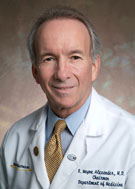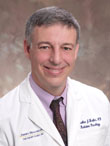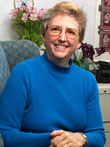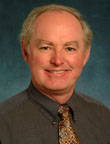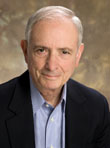 |
|||||||||||||||||||
September 2009 |
|||||||||||||||||||
Grady’s backWhen Grady's situation became bleak in late 2007, it came as no surprise that many of you lent your voice in the call to keep the hospital open. Grady faced big hurdles then. It had lost more than $50 million that year and owed more than $60 million to Emory and Morehouse for physician services. Since then, governance of the hospital was turned over to a not-for-profit board, a new CEO stepped in, and good things followed. "Grady has achieved two major objectives to sustain itself for the next generation," reports William Casarella, Executive Associate Dean for Clinical Affairs. "It has received funding for exciting new projects and has made dramatic quality and performance changes, which have met or often surpassed our goals for this year." Once the hospital's governance was turned over to a new board, headed by former Georgia Pacific CEO Pete Correll, last year, a $200 million grant from the Robert Woodruff Foundation came in to breathe new life into Grady. The grant funded new hospital beds, patient room furniture, an operating room patient tracking system, an upgraded water system, new incubators, updated laboratory and sterilizing equipment, and five new ambulances. Grady updated five radiographic rooms and installed a new MRI unit, two CT scanners, two nuclear cameras, a fluoroscopy unit, a biplane catheterization lab, and several portable x-ray units. It also renovated the burn center's outpatient center. In the fall of 2010, the hospital plans to have a new electronic medical record system in place. In the past year, the Joint Commission accredited the hospital and awarded its primary stroke center advanced certification and its organ donation program a medal of honor. Several areas of quality and performance improvement helped make accreditation possible. The hospital decreased wait times from the ER to admission from 13 hours to three hours. Average length of stay decreased from 6.86 days to 5.65 days. Critical turnaround times for cardiac enzyme tests in the ER decreased from 82 minutes to 37 minutes. The rate of systemic infections associated with central venous catheterization decreased by 75%. It is important to note that these improvements were made under the leadership of Grady CEO Michael Young, who joined Grady just one year ago. This past April, the Marcus Foundation awarded a $20 million gift to improve emergency care for trauma and acute neurologic emergencies. The new trauma center will expand from four to eight dedicated trauma bays with the proper equipment, space, and resuscitation tools to enhance care for stroke patients and those with traumatic brain injuries. In addition, the hospital will construct a new 20-bed neurointensive care unit and recruit five key physicians to support the new centers. "We hope that Grady is on its way to financial stability," says Casarella. "Emory decreased Grady's debt from $64 million in 2007 to less than $40 million last year. And all 2009 payments have been made in a timely fashion."
Meet the class of 2013They are our biggest class ever: 138 new M1 students, with 60 men and 78 women. Their average age is 23, and 13 already have graduate degrees in areas such as dentistry and genetics. The class’s average MCAT score is 34, 10 will go into the MD/PhD program, and 13 will go into the MD/MPH program. Students graduated from Emory (15), University of Georgia (9), Washington University (7), University of Pennsylvania, Brown University, Duke University, Georgia Tech, and University of Virginia (5 each).
Bringing health care to those in need
Students and faculty in the Physician Assistant Program and the Department of Family and Preventive Medicine recently trekked down to south Georgia to provide free basic health care to migrant farmworkers.
The team diagnosed and treated everything from hypertension, headaches, diabetes, respiratory infections, athlete's foot, and eye problems. "We get a fair number of workers who say they have never seen a health care provider or that it's been years since they have," says Tom Himelick, Director of Community Projects for the Physician Assistant Program. Over the course of two weeks in late June, they saw about 1,700 migrant farmworkers and family members in the Valdosta and Bainbridge areas. The project started in 1996 with eight students and four faculty and has grown to 30 students and 10 faculty.
Newsworthy medicineIn addition to Sanjay Gupta, the SOM has two other telegenic faculty members, serving as medical reporters and dispensing helpful health information and tips to thousands of loyal viewers. Kimberly Manning, an internist at Grady who is Director of the Transitional Year Residency Program for the Department of Medicine, and Neil Winawer, Director of the Hospital Medicine Service and Director of the Telemetry Unit at Grady, appear on Mondays and Wednesdays at 8 a.m. during the "House Calls" segment on Fox 5's morning show, Good Day Atlanta. Manning and Winawer research and write their own segments and choose topics they believe are interesting to viewers. Winawer, who is Manning’s faculty mentor, has a knack for making viewers understand the latest news from complex medical jargon. Manning says she focuses her segments on news viewers and other mothers (she has two boys) can use. "I try to keep my topics basic because people are usually multi-tasking while watching the show," she says. "For me, medicine is the best way to affect people's lives," remarks Winawer. Both faculty are providing informative medical stories that have an impact on our community, including reports on swine flu, fitness over age 40, skin cancer prevention, and hospice care. In case you missed it: View a recent roundtable on Fox News that included our medical students, physician assistant students, and residents.
Fox News held two roundtables live, asking opinions of these future health care providers on the Obama administration's proposed health care reform. Many of them said that true reform must include increasing access to health care. "We see the uninsured every day," said one medical student. "It's about access and affordability."
Spotlight on medicine
With more than 200 residents training under the department’s 550 faculty at six hospitals, the Department of Medicine has one of the largest internal medicine training programs in the country. "We have a nationally renowned faculty developing innovative and diverse curricula in such areas as predictive health, immune-mediated diseases, and regenerative medicine," says Wayne Alexander, Bruce Logue Professor and Chair. "The fact that our chief resident at Emory University Hospital, Rosette Chakkalakal, has been chosen for the prestigious 2010-2012 class of the Robert Wood Johnson Foundation Clinical Scholars Program is evidence of our prominent teaching program. She will learn to conduct innovative research and work with communities, other doctors, and policymakers on issues important to the health of all Americans." A sample of other recent research accomplishments and honors from the department include the following:
Every August the department holds a staff appreciation celebration and recognizes three of its outstanding staff:
Save the date I will give the annual State of the School address on Tuesday, October 13, at 5 pm in the auditorium of the Woodruff Health Sciences Center Administration Building. A reception will follow in the entrance hall of the School of Medicine. I hope to see all of you there. Recent awards and honors
Jonathan Beitler, Professor of Radiation Oncology and a flight surgeon with the rank of Lieutenant Colonel, recently earned the Army Achievement Medal while serving on active duty at Fort Rucker, Ala., headquarters for Army Aviation. During his recent tour, he provided medical consultation following three aircraft mishaps and devised a system to help reduce delays in getting pilots medically certified for flight. The medal is awarded to noncombatant members of the U.S. Armed Forces who have distinguished themselves by meritorious service or achievement. Paula Frew, a Center for AIDS Research investigator in Infectious Diseases, has been recognized by the National AIDS Education and Services for Minorities (NAESM) with the Gerald Ludd Lifetime Award for Excellence. The award honors her for outstanding efforts in community outreach and commitment to helping NAESM remove HIV/AIDS from the African American community. Susan Herdman, Division Director of Physical Therapy and Professor in the departments of Rehabilitation Medicine and Otolaryngology, received the American Physical Therapy Association’s Marian Williams Award in June. The award honors her for contributions to physical therapy through excellence in research. Herdman specializes in the treatment of patients with vestibular deficits. David Lambeth, of Pathology and Laboratory Medicine, will receive the 2009 Discovery Award from the Society for Free Radical Biology and Medicine at their annual meeting on November 18. Lambeth has been a professor at Emory since 1980. His research focuses on reactive oxygen species (ROS) and ROS roles in cellular regulation, cancer, and atherosclerosis and innate immunity. He was named Eminent Scientist of the Year 2003 by the International Research Promotion Council. Helen Mayberg will begin her term as president of the Society of Biological Psychiatry in May 2010. The organization aims to be the leading professional organization in the integration and advancement of science relevant to psychiatric disorders, with the ultimate goal of reducing or preventing the suffering of those with these disorders. The University of Bath in Great Britain has named Raymond Schinazi, Director of Virology/Drug Discovery Core of the Emory Center for AIDS Research, as the first alumnus to join the Chancellor’s Roll of Honor. His gift of $550,000 will enable two researchers each from Emory and Bath to study and work at each other's university. Schinazi also founded the Schinazi International Exchange Program, which provides three- to six-month research opportunities at Bath to Emory faculty and postdoctoral fellows. John Votaw was named Vice Chair of Research in Radiology. His goals are to engage more of his department in research and incorporate medical students into research labs. Beginning next year, two resident slots in radiology will be reserved for those with a concentration in research. Bernard Weiss, of Pathology and Laboratory Medicine, retired on June 30 after a distinguished career in molecular biology research, including the past 11 years at Emory. "He helped launch the field of DNA enzymology," says Tristram Parslow, Chair of the department. "His pioneering work was seminal to our understanding of DNA replication, metabolism, and repair, and it set the stage for recombinant DNA and for the revolution in genetic engineering." To mark his retirement, the pathology department honored Weiss with a scientific symposium in June, exploring the scientific frontiers of genetics and biology. Speakers included Charles Richardson, professor of biochemistry at Harvard; Thomas Kelly, director of research at the Sloan-Kettering Institute; and Hamilton Smith, 1978 Nobel Laureate and now director of synthetic biology at the Venter Institute. All three are Weiss’s longtime colleagues. The University of Vermont College of Medicine recently honored three distinguished graduates who call Emory home: Jonathan Glass of Neurology, Ian Greenwald of Emergency Medicine, and Eva Lathrop of Gynecology and Obstetrics. |
|||||||||||||||||||
 |
|||||||||||||||||||


